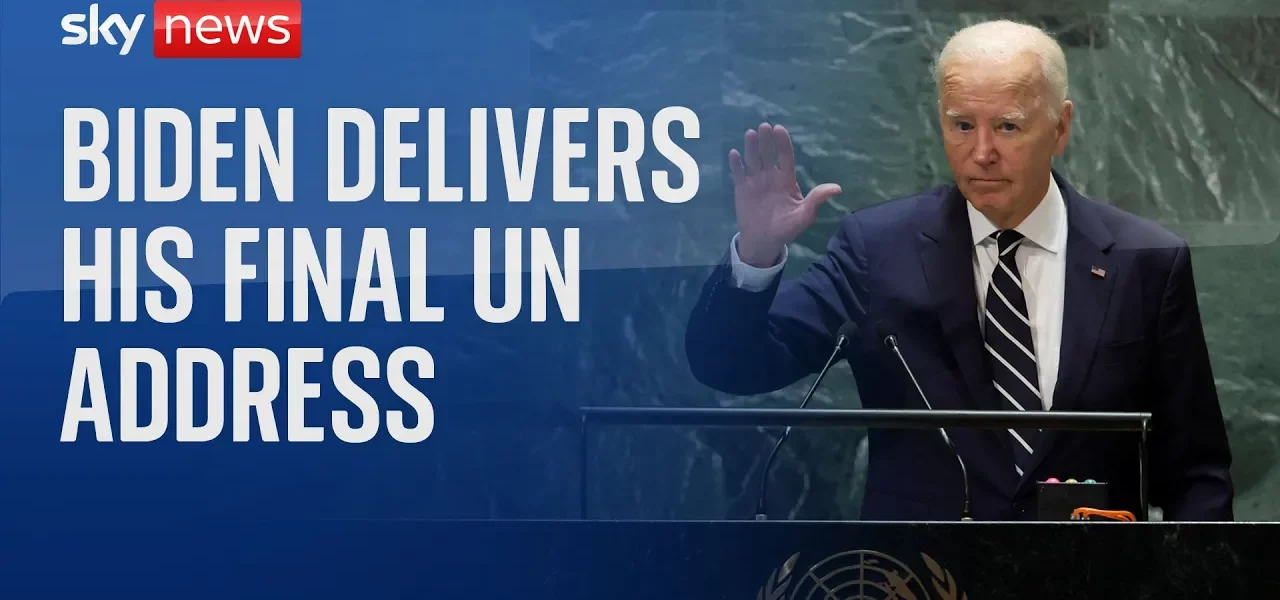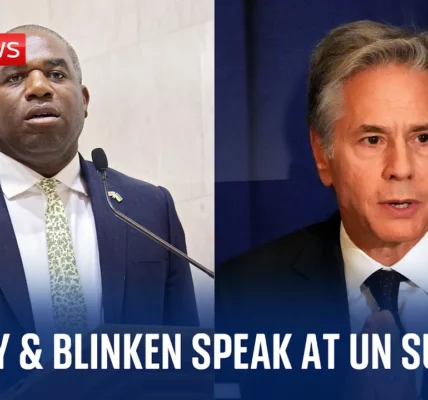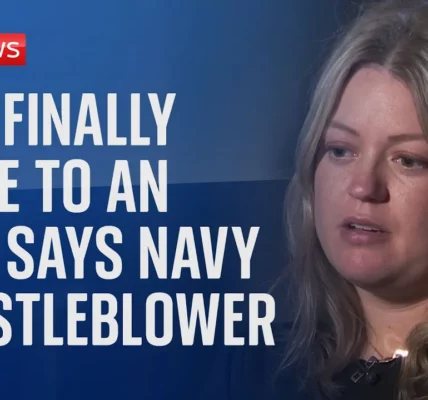Joe Biden’s Speech at the UN: Addressing Global Crises and the Middle East Conflict

In his recent address at the United Nations, President Joe Biden confronted a myriad of escalating global crises, particularly the volatile situation in the Middle East. His speech, delivered in New York, aimed to strike an optimistic tone in a time marked by international turmoil, but many found it discordant given the severity of the conflicts at hand. This article delves into the key themes of Biden’s address, the current state of international diplomacy, and the implications for peace in the region.
Introduction: The Weight of Global Crises
As President Biden arrived at the UN, the backdrop was far from ideal. The geopolitical landscape is fraught with conflict, including wars in Ukraine, Sudan, Gaza, and now Lebanon. Biden’s speech aimed to convey hope and resilience, yet many listeners felt the urgency of the crises overshadowed his message. Understanding the intricacies of these conflicts is crucial, as they pose significant challenges not only to the nations involved but also to Biden’s legacy as a leader capable of fostering peace and cooperation on the global stage.
The Escalating Middle East Conflict
The Middle East has become a focal point of international concern, with tensions escalating rapidly. In this section, we explore the various dimensions of the conflict and its implications.
Current State of Affairs
The recent violence in Lebanon and its ripple effects on neighboring countries have raised alarms among world leaders. Key points include:
- Increased military actions between Israel and various groups in the region.
- Humanitarian crises exacerbated by ongoing conflicts.
- Growing calls for international intervention and support for diplomatic resolutions.
International Reactions
Responses to the conflict have varied significantly:
- Turkey’s Leadership: Turkish President’s condemnation of Israeli actions, labeling them as part of a “ruthless project of destruction.”
- Israel’s Defense: The Israeli Ambassador’s insistence on the country’s right to self-defense amidst accusations of aggression.
- UN’s Role: The UN’s effectiveness in mediating conflicts has come under scrutiny, with many questioning its current functionality.
The Challenge of Diplomacy
Biden’s speech emphasized the importance of diplomacy, yet there remains a significant gap between rhetoric and action on the ground.
Diplomatic Efforts: A Slow Grind
Despite the urgent need for diplomatic intervention, the pace of negotiations has been alarmingly slow:
- Limited evidence of active diplomatic engagements among world leaders.
- Heavy reliance on condemnation rather than constructive dialogue.
- Concerns that escalating violence may outpace diplomatic efforts, leading to further instability.
The Role of the UN
The UN has historically been a platform for conflict resolution, but its current credibility is in question:
- Dysfunction and division among member states hinder effective action.
- Calls for reform to enhance the UN’s ability to respond to crises swiftly.
- Debates over the relevance of traditional diplomatic approaches in an ever-evolving geopolitical landscape.
Conclusion: The Path Forward
Biden’s address at the UN highlighted both the challenges and the potential for diplomatic solutions amidst escalating global crises. While the optimism he sought to convey was met with skepticism, it is crucial for international leaders to prioritize dialogue and collaborative efforts to address the pressing issues at hand. As we move forward, the world must remain vigilant and proactive in its pursuit of peace, particularly in the Middle East. For those interested in further exploring the implications of these conflicts, we invite you to read our related articles on global diplomacy and the impact of international relations on local communities.
“`




